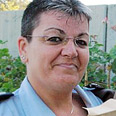
'We didn't understand we were at war'
In testimony before the Winograd Commission, chief military censor addresses the problems of the last war and the challenges of the new information age
Chief Military Censor Brigadier General Sima Vaknin appeared before the Winograd Commission, investigating the Second Lebanon War, Monday, to respond to their question regarding the Censor's performance during the war.
"We crossed a red line," she said. "Throughout the years the Censor's manpower has been cut by 50%. When we had 70 people working, there were three or four written newspapers, and that was it. Today we have the internet, television, radio and local papers and only 28 people, without any reserve soldiers… It's impossible to expect the censor to do more."
"Can I say that the censor knows how to work with foreign correspondents?" she asked, and immediately answering her own question said "no. Period. We lack the ability... I had to activate censors at home."
Public perceptions
Brigadier-General Vaknin said she was well aware of the public feeling that the censor failed, a view which pains her and with which she disagreed.
"There is a very difficult gap – which, I must say, I do not know how to bridge – between reality and the perception that the censor disintegrated and everything was in the media and that operations were canceled, soldiers injured, etc., etc.," she said.
"My question is not what the public thinks- even though it pains he it feels this way. The question is what are the objections we need to conceal and did we succeed in keeping them secret. And this is an external indicator determined by the Department for Information Security, which oversees us."
Nevertheless, the censor finds room for improvement, i.e. those instances in which information was not leaked but rather passed to journalists with official military sanction. "I think that to a certain extent, we did not fully understand that we at war.
"We had briefings as if we were in just another military operation… In war, ambiguity is our strength, information superiority – which we lost here to some degree."Some of her testimony was dedicated to the news revolution wrought by the internet, especially the issue of surfer responses, or 'talkbacks.' "I can't control them, I asked someone to check it out for we. I do not know how it's possible to tackle this in Israel. How can I deal with a mother who receives a text message from her son?"










